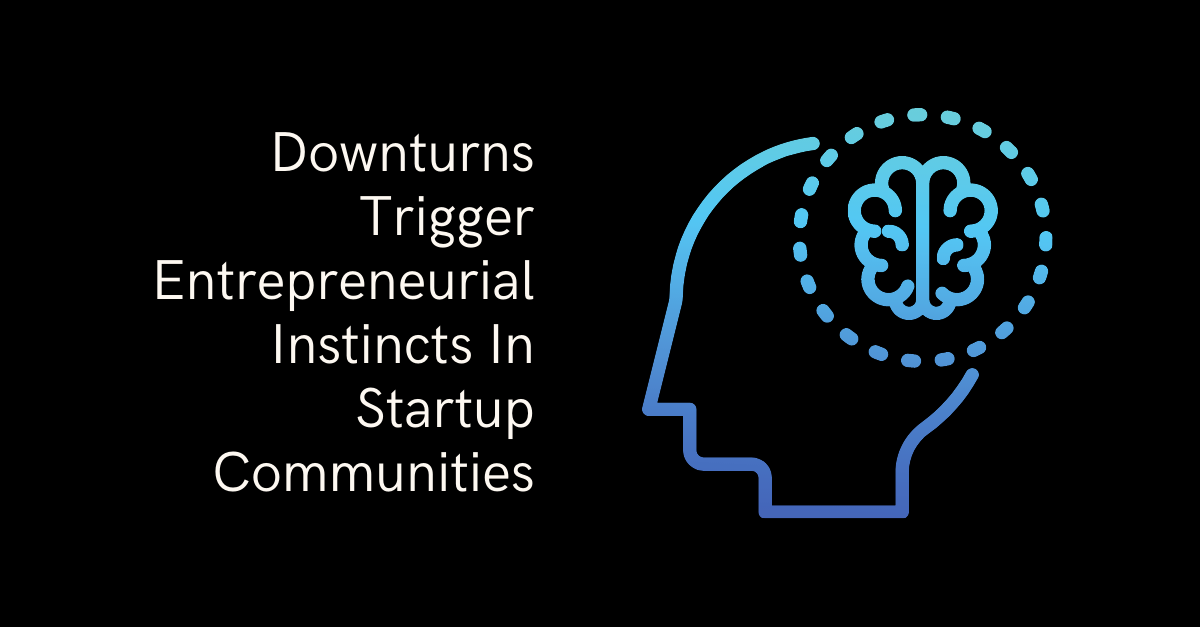I wrote this article at the start of the pandemic. Since that time, while the pandemic has persisted (thankfully it’s on its way out), many successful new ventures have spawned. There’ll be times again in the future when such unfortunate events unfold. And the following thoughts will still hold good.
This article originally appeared on my Forbes column: https://www.forbes.com/sites/forbesfinancecouncil/2020/06/05/pandemic-spurs-social-entrepreneurship-in-startup-communities/
As an entrepreneur-turned-investor, and having survived prior downturns, I have my share of bumps and bruises that serve as reminders and motivators. But I also like to remember that some of the most successful tech companies were funded during the last big downturn, such as Dropbox, Airbnb and Credit Karma. With that in mind, our venture capital firm is staying the course during the pandemic and continues to aggressively look for great entrepreneurs to fund.
We’ve seen how responding to the crisis has required newer approaches, innovations and social entrepreneurship throughout industries. Venture capitalists have an important role in promoting this social entrepreneurship by identifying, accelerating and repurposing these technologies that have the potential to create lasting impacts and become mainstays after COVID-19.
The current business environment has increased the sense of urgency and accelerated the timeline for major enterprise IT imperatives, such as cloud migration, automation and cybersecurity. A newer breed of cloud management platform (CMP) vendors is emerging to help companies pursue cloud transformation, reduce IT spend and mitigate cybersecurity threats. As we move into a cloud-first world, I expect CMP vendors will become a mainstay in enterprise IT strategies.
The unprecedented crisis has catalyzed the development and use of tools such as conversational AI bots by state unemployment agencies that have been challenged in recent times to handle the dramatic increase in queries. The use of these bots has decreased the strain on operations and, more importantly, provided direct help to thousands of citizens in need. These tools will likely be permanent features, bringing efficiencies while improving the timing of an organization’s services.
The healthcare industry has also been embracing the use of AI to help predict unplanned hospital admissions and screen patients during the pandemic. These innovations are playing vital roles in keeping hospital capacity available for those most in need. AI technology is also being used to improve the administrative side of healthcare, such as automating the explanation of benefits process. In this way, AI will permanently reshape the outlook for the healthcare industry.
Retailers and restaurants have been leading the economic recovery, utilizing innovative last-mile solutions for contactless delivery and curbside pickup and streamlining delivery operations in a way to build social distancing and prevent overcrowding. While we can expect this phenomenon to abate once a vaccine hits the market, a significant chunk of patrons may still choose to use this mode in the future, thereby making the use of these technologies integral to the retail and restaurant industries in the years to come.
Economies have bounced back from recessionary trends through innovation that sustains to create a lasting impact. The current crisis is no exception as startups as well as incumbents innovate in areas of last-mile delivery, conversational bots, cloud transformation and hospital admission. Spurred by this difficult time, these advancements will enable newer transformational processes and workflows that will have a lasting impact on the way business is transacted. These challenging times are encouraging social entrepreneurship, and venture capitalists have an important role in supporting it.
